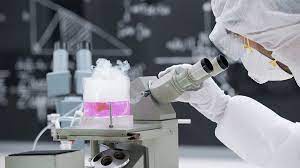Laboratory equipment is the cornerstone of scientific exploration. These specialized tools and instruments are engineered with precision to ensure accuracy, reliability, and safety in various research settings. In this article, we'll delve into the specific characteristics that define laboratory equipment and make them indispensable in the world of science.
Keywords: Laboratory Equipment, Scientific Tools, Precision Instruments, Characteristics
1. Precision and Accuracy
One of the most defining characteristics of laboratory equipment is precision. These instruments are designed to provide highly accurate measurements, ensuring that the data collected in experiments is trustworthy. Whether it's a balance that measures a substance's mass to the microgram or a pipette that dispenses exact volumes of liquid, precision is non-negotiable in the laboratory.
2. Durability and Longevity
Laboratory equipment is built to withstand rigorous use. The materials used in their construction are chosen for their durability, resistance to chemicals, and ability to endure mechanical stress. This ensures that the equipment remains functional over extended periods, reducing the need for frequent replacements and minimizing downtime in the lab.
3. Calibration and Standardization
To maintain precision and accuracy, laboratory equipment undergoes regular calibration and standardization. This process ensures that the instruments are performing as expected and that their measurements align with established standards. Calibration certificates and traceability to national standards are essential features of reliable laboratory equipment.
4. Versatility
Many laboratory instruments are designed to be versatile and adaptable to a range of experiments. For example, a spectrophotometer can be used for various applications, from measuring the concentration of a chemical solution to assessing the purity of DNA. This versatility maximizes the utility of laboratory equipment and makes them valuable assets in a research setting.
5. Ergonomics and User-Friendly Design
Laboratory equipment is often engineered with user comfort and safety in mind. Ergonomically designed features, such as easy-to-read displays, adjustable settings, and comfortable grips, enhance the user experience. Additionally, safety features, such as automatic shutoffs and protective barriers, are integrated to minimize the risk of accidents.
6. Compliance with Regulatory Standards
Laboratory equipment must adhere to strict regulatory standards to ensure the safety of both researchers and the integrity of results. Compliance with regulations related to electrical safety, emissions, and biohazard containment (in the case of biological equipment) is essential. Certifications and labels indicating compliance are prominently displayed on qualified equipment.
7. Traceability and Documentation
Traceability is a crucial characteristic of laboratory equipment. Each instrument should have a documented history, including records of maintenance, calibration, and repairs. This traceability not only ensures the instrument's reliability but also aids in troubleshooting and quality control.
8. Specialization and Customization
While some laboratory equipment is designed for general use, others are highly specialized to meet the unique requirements of specific experiments or research areas. Customization options are often available to tailor instruments to the exact needs of a laboratory.
9. Safety Measures
Safety features are integral to laboratory equipment. Instruments that handle hazardous materials or generate potentially harmful reactions are equipped with safety measures such as fume hoods, ventilation systems, and emergency shut-off switches. Safety protocols and training are essential components of using laboratory equipment effectively.
10. Data Integration and Connectivity
In today's digital age, laboratory equipment increasingly includes features for data integration and connectivity. Many instruments are equipped with software interfaces that allow researchers to record and analyze data digitally, improving efficiency and data management.
In conclusion, laboratory equipment in kuwait embodies precision, durability, versatility, and a commitment to safety and compliance. These characteristics make them essential tools for researchers across various scientific disciplines. As technology continues to advance, laboratory equipment evolves to meet the ever-expanding demands of scientific exploration, contributing to the progress of knowledge and the betterment of society.
Reference Link(OriginallyPosted: https://sites.google.com/view/ziebaq/the-precision-tools-characteristics-of-laboratory-equipment


No comments yet